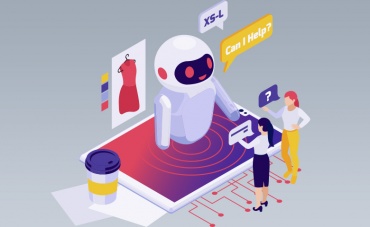What Is Our Ethical Responsibility Toward Artificial Intelligence?

The way we work, live, and interact with the world around us is changing as a result of artificial intelligence (AI). AI has the potential to completely transform many facets of our daily lives, from personalized social media recommendations to self-driving cars. As with any powerful technology, there are worries about AI’s potential ethical ramifications and the need to strike a balance between innovation and responsibility in its creation and application.
The potential for bias and discrimination in AI is among the main ethical issues it raises. The data that AI systems are trained on determines how effective they will be, and if that data is biased or lacking, the AI may reinforce or magnify already-existing inequalities. A concern about the use of facial recognition technology in law enforcement and other fields has been raised, for instance, by research showing that women and people of color experience higher error rates when using the technology.
The effects of AI on the workforce and employment are another ethical concern. While AI has the ability to automate a variety of tasks and boost productivity, it also has the potential to cause job displacement and exacerbate already-existing inequalities in the labor market. When creating policies and programs to support workers and advance social mobility, it is crucial to take into account the social and economic effects of AI.
Concerns have also been raised regarding the possibility of AI being employed for evil intent, such as in cyberattacks or the swaying of public opinion. It is crucial to ensure that AI is created and implemented in a responsible and ethical manner, with measures in place to guard against abuse and safeguard personal information.
A collaborative and multidisciplinary approach to the development and use of AI is required to address these ethical issues. Engaging stakeholders from various backgrounds and viewpoints, such as ethicists, policymakers, and civil society organizations, is a part of this. Additionally, it calls for a dedication to openness, responsibility, and the application of ethical frameworks to direct decision-making throughout the AI development process.
To sum up, AI has the potential to significantly alter many facets of our lives, but its creation and application must strike a balance between innovation and responsibility. This necessitates a careful and cooperative approach that considers the ethical implications of AI and works to build a more just and equitable world for all. Together, we can make sure that AI is created and applied in a way that is morally and responsibly beneficial to society as a whole.
An Analysis by Pooyan Ghamari, Swiss Economist with Expertise in the Digital World
Comments are closed.